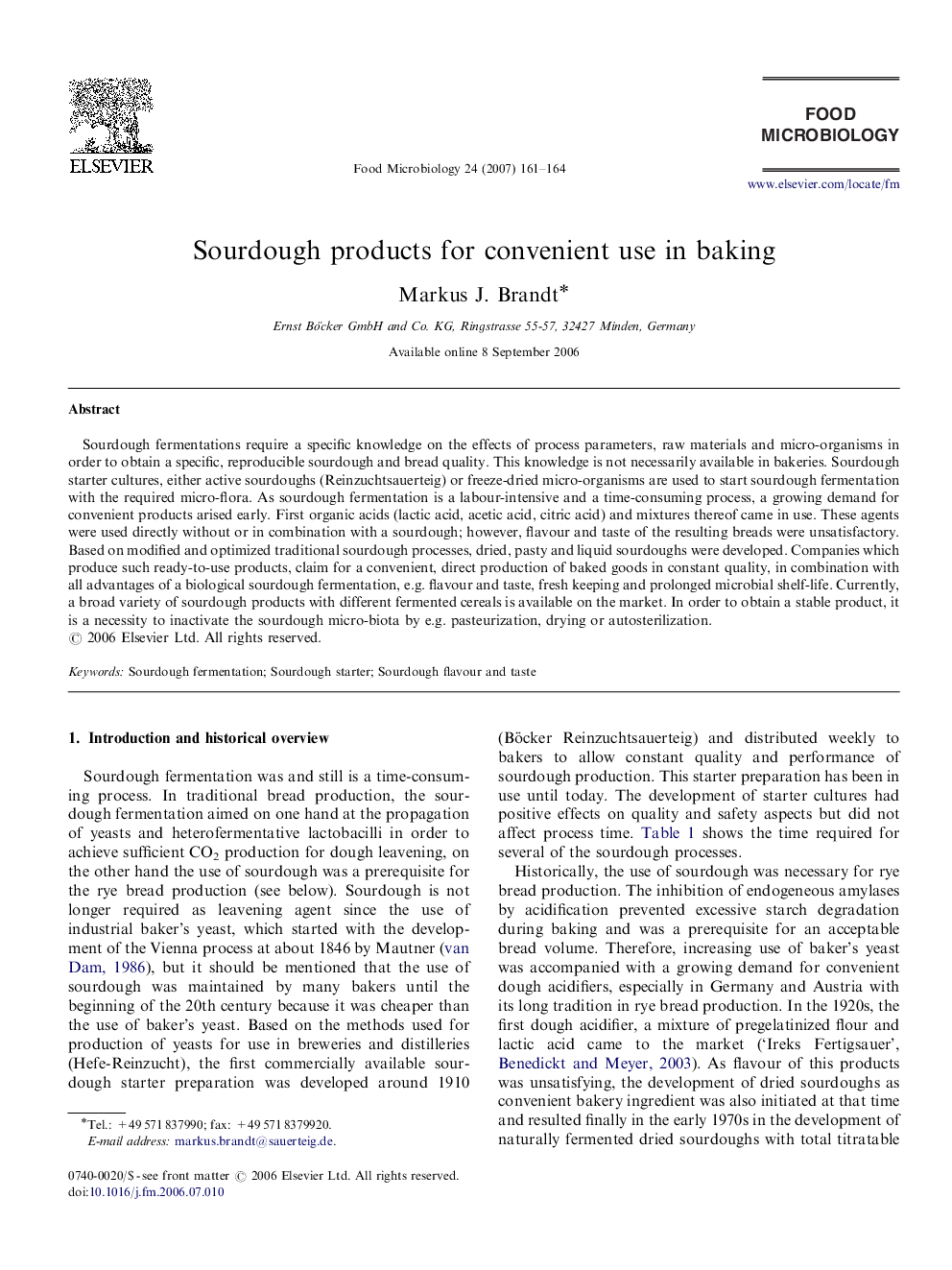| Article ID | Journal | Published Year | Pages | File Type |
|---|---|---|---|---|
| 4364027 | Food Microbiology | 2007 | 4 Pages |
Sourdough fermentations require a specific knowledge on the effects of process parameters, raw materials and micro-organisms in order to obtain a specific, reproducible sourdough and bread quality. This knowledge is not necessarily available in bakeries. Sourdough starter cultures, either active sourdoughs (Reinzuchtsauerteig) or freeze-dried micro-organisms are used to start sourdough fermentation with the required micro-flora. As sourdough fermentation is a labour-intensive and a time-consuming process, a growing demand for convenient products arised early. First organic acids (lactic acid, acetic acid, citric acid) and mixtures thereof came in use. These agents were used directly without or in combination with a sourdough; however, flavour and taste of the resulting breads were unsatisfactory. Based on modified and optimized traditional sourdough processes, dried, pasty and liquid sourdoughs were developed. Companies which produce such ready-to-use products, claim for a convenient, direct production of baked goods in constant quality, in combination with all advantages of a biological sourdough fermentation, e.g. flavour and taste, fresh keeping and prolonged microbial shelf-life. Currently, a broad variety of sourdough products with different fermented cereals is available on the market. In order to obtain a stable product, it is a necessity to inactivate the sourdough micro-biota by e.g. pasteurization, drying or autosterilization.
